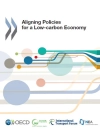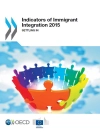This book provides a critical commentary on China’s situation and future outlook from the perspective of the 2012-13 generational power transfer. In this power transfer, taking place against the background of an increasingly unstable domestic situation, an apparently outstandingly successful generation of “half-communist” leaders, recently increasingly plagued by scandal, transferred responsibility to a generation confronted by mixed expectations and factional in-fighting. Many international observers doubt that the new leadership will have the will or the power to introduce serious reforms in a country that reports 100, 000 riots involving more than 500 persons in public areas per year. The China of 2013 seems to be in the midst of a transition seldom seen since the 1970s. The question is if the resulting hope expressed by Chinese dissidents and Western leaders for a “necessary” development of China’s still largely autocratic system towards a kind of context-adequate democracy is plausible or not. Featuring incisive commentary by the authors and interviews with experts on the region’s political economy, the volume addresses such timely questions as: Should “rapid democratization” of China be the strategic goal of the West or rather a step-by-step approach towards the “rule of law“ first, and “illiberal democracy” to follow? Should the West be more worried about a thriving China, or a China in crisis? Will China’s success contribute to the success of the global community and the world order system, or be a threat to it? What can the West do to help China develop more participatory and inclusive approaches in order to secure social stability? And how can the West strengthen its democratic allies on China’s borders?
Endorsements
“This is a book I recommend to students and teachers around the globe. It provides a concise introduction into present China’s main problems, questions and perspectives. A must forall who try to understand the rising Pacific giant not through short-term answers, but through long-term questions.”
Professor Ole Bruun, Institute for Society and Globalization, Roskilde University, Denmark
“The rise of China to global superpower calls for clear, condensed, yet comprehensive comments for the broader public. This book accomplishes those goals, providing a quick yet comprehensive introduction into what we may expect as the Middle Kingdom seeks to assert what it increasingly sees as its rightful role as a leading world power.”
Professor Richard Appelbaum, Mac Arthur Foundation Chair in Global & International Studies and Sociology, University of California at Santa Barbara
“The new constellation between China and the West needs inspiring departure points of discussion, which may be sober or provocative. This booklet is both in one. It should be used as a basis for in-depth discussion and I recommend it for classrooms and the global civil society debate.”
Professor Jan Nederveen Pieterse, Mellichamp Professor of Global Studies and Sociology, University of California at Santa Barbara
Mục lục
Foreword.- Preface.- Chapter 1 Xi Jinping’s China.- Chapter 2 The cry for Chinese democratization.- Chapter 3 The 2012-13 generational power transfer and it’s perspectives.- Chapter 4 The Ethnonationalism Problem.- Chapter 5 China’s new foreign policy and the West.- Chapter 6 China and its neighbors.- Chapter 7 China: The road ahead.- Chapter 8 Perspectives I: Basing China’s government on legitimacy and values: An Interview with Peng Bo.- Chapter 9 Perspectives II: Coexistence between Communitarian China and the Individualistic U.S.: An Interview with Robert Martin Less.
Giới thiệu về tác giả
Roland Benedikter, Dott. lett., Dr. rer. pol., Dr. phil., Dr. phil., served as European Foundations Research Professor of Political Analysis with specialization in Political Anticipation and Contextual Political Analysis in residence 2009-13 at the Orfalea Center for Global and International Studies, University of California, Santa Barbara, and as Long-term Visiting Scholar / Research Affiliate 2009-13 at the Europe Center, Freeman Spogli Institute for International Studies, Stanford University. Since fall 2013, he is Visiting Scholar at the Orfalea Center, Full Academic Fellow of the Potomac Institute for Policy Studies Washington DC, Trustee of the Toynbee Prize Foundation Boston, Affiliate Scholar of the Edmund Pellegrino Center of Georgetown University, Full member of the Scientific Council of the Austrian Society for European Politics Vienna and Full Member of the Club of Rome. Previously, he served as Visiting Professor and Research Scholar at Columbia University New York, Villanova University Philadelphia and RMIT University Melbourne. He has lectured at Viadrina European University Frankfurt/Oder, Korea University Seoul, Vienna and Innsbruck Universities, Clemens Ohridski University Sofia, Mersin Universitesi and Catholic University Lima. From 1995-2003, Benedikter also served as the personal secretary and spokesperson of the Minister for Culture, Minorities, Education and Science of the Government of the Autonomous Province of South Tyrol, a European autonomous model region in the North of Italy; and as spokesperson of the President of the Cultural Commission of the Assembly of European Regions (AER) Barcelona as well as of the Vice President of the Federal Union of European Ethnic Groups (FUEN) Strasbourg. Benedikter has been writing for Foreign Affairs, The National Interest, European Foreign Affairs Review, New Global Studies, Challenge Magazine, The European Berlin, European Financial Review London, European Business Review London, Blätter für deutsche und internationale Politik, Welttrends Berlin, International. The Journal for International Politics Vienna, Aufklärung und Kritik Marburg, as well as the leading German and Austrian newspapers Die Welt Berlin and Der Standard Vienna. He is co-author of the February 2013 Pentagon and U.S. Joint Chiefs of Staff White Paper on the Future of Neurotechnology and Neurowarfare, as well as author and editor of 15 books and of 16 encyclopedia articles.
Verena Nowotny, MA, served for 10 years as foreign policy spokesperson for the Austrian government, mainly for Austrian chancellor Wolfgang Schüssel. In 2009-10 she acted as spokesperson for Austria’s non-permanent membership in the United Nations Security Council. She enhanced her in-depth knowledge of international affairs with working experiences in China and the United States. Nowotny holds a Master’s degree in Political Management from George Washington University. She currently works as an independent expert for public affairs, China-America-Europe relations and inter-cultural political and social communication in Austria’s capital Vienna.












